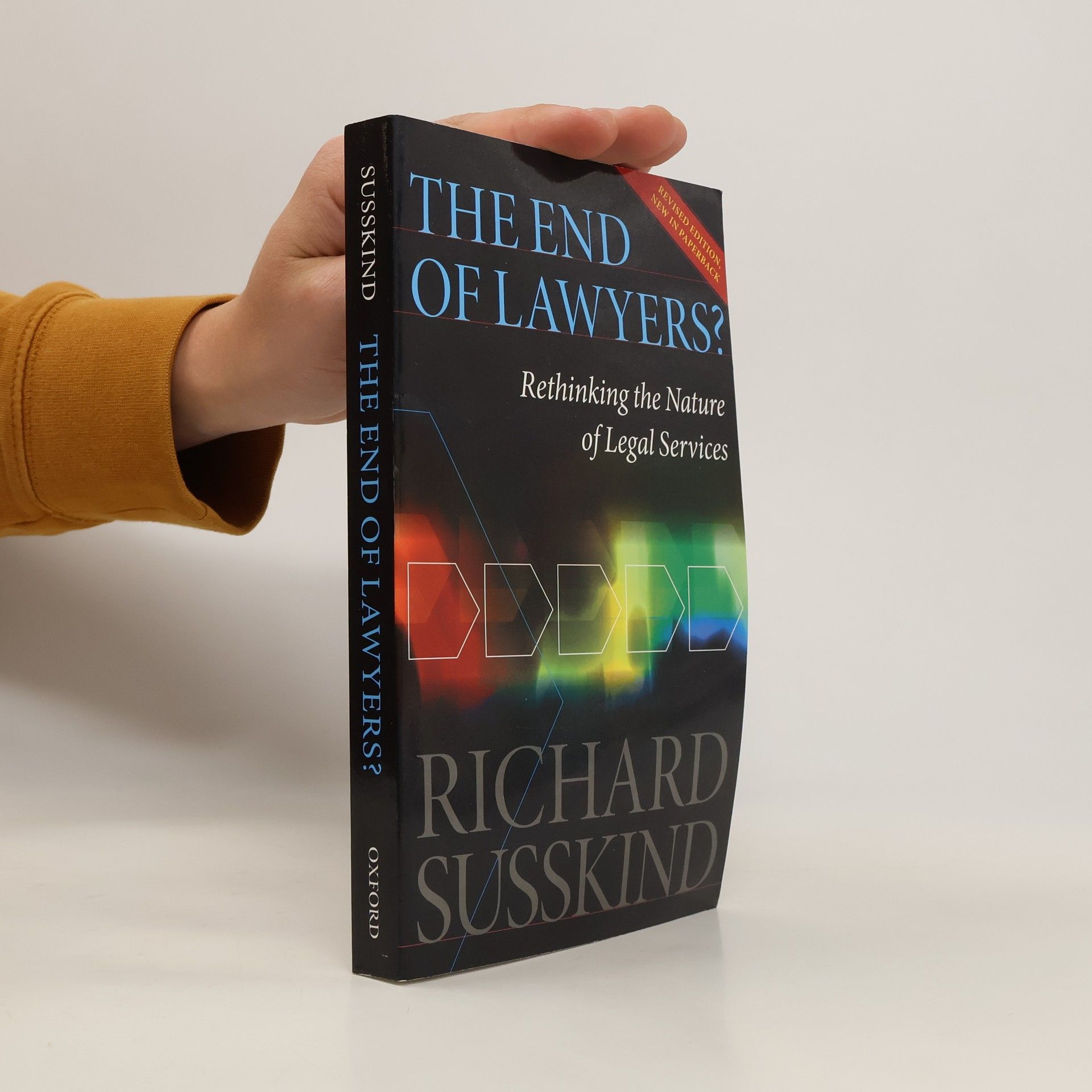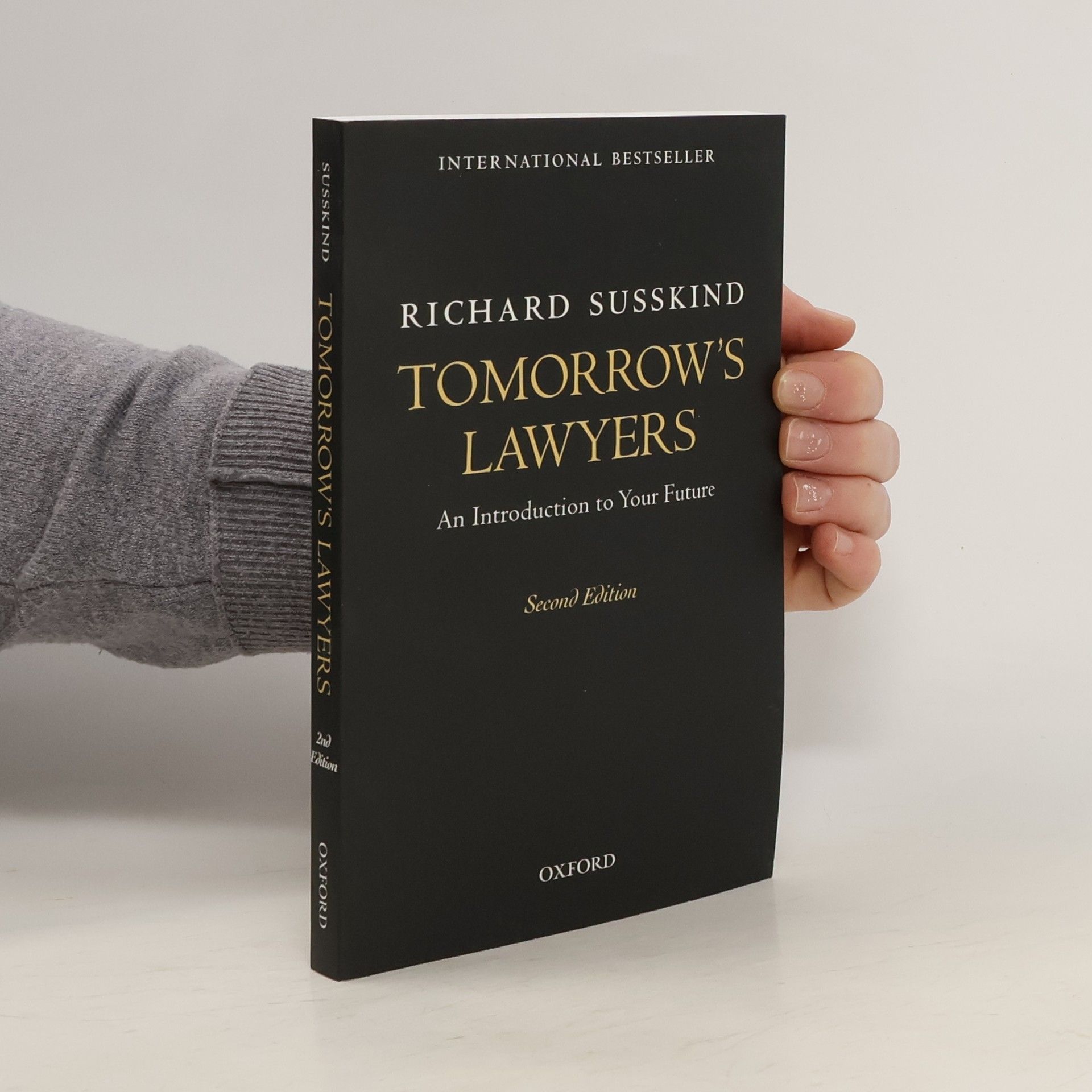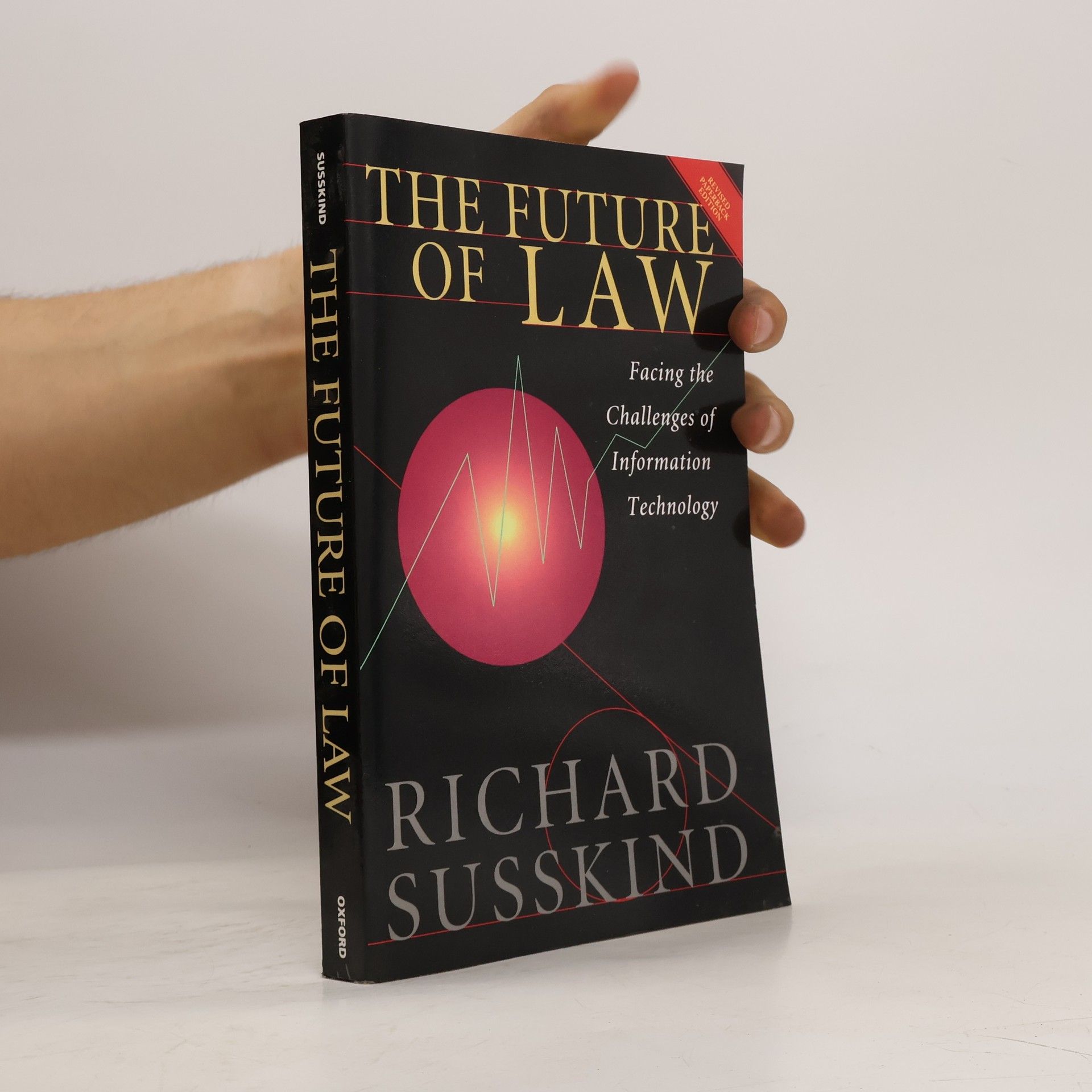The book explores the transformative impact of information technology on the legal profession and justice administration. It highlights how IT is not only automating legal services but also fundamentally reshaping the legal process towards a focus on dispute prevention and risk management. With increased accessibility, IT is set to integrate legal practices into everyday life and business. The author discusses the implications, opportunities, and challenges posed by this IT revolution, making it essential for anyone looking to adapt to these significant changes.
Richard Susskind Boeken






Online Courts and the Future of Justice
- 336bladzijden
- 12 uur lezen
In Online Courts and the Future of Justice, Richard Susskind, the world's most cited author on the future of legal service, argues that online courts will transform litigation and solve two problems: less than 50% of humanity have access to justice; and, in most legal systems, resolving legal disputes is too costly, slow, complex, and antiquated.
Tomorrow's Lawyers
An introduction to your future
"Tomorrow's Lawyers predicts that we are at the beginning of a period of fundamental transformation in law: a time in which we will see greater change than we have seen in the past two centuries. Where the future of the legal service will be a world of internet-based global businesses, online document production, commoditized service, legal process outsourcing, and web based simulation practice. Legal markets will be liberalized, with new jobs for lawyers and new employers too. This book is a definitive guide to this future - for young and aspiring lawyers, and for all who want to modernize our legal and justice systems. It introduces the new legal landscape and offers practical guidance for those who intend to build careers and businesses in law. ... This new edition has been fully updated to include an introduction to online dispute resolution, Susskind's views on the debates surrounding artificial intelligence and its role in the legal world, a new analysis of new jobs available for lawyers, and a retrospective evaluation of The Future of Law, Susskind's prediction published in 1996 about the future of legal services." -- Publisher's website.
Originally published 2015; with a new preface.
The End of Lawyers?
- 303bladzijden
- 11 uur lezen
This widely acclaimed legal bestseller has ignited an intense debate within the legal profession. It examines the effect of advances in IT upon legal practice, analysing anticipated developments in the next decade. It urges lawyers to consider the sustainability of their traditional role.
The future of the professions
- 346bladzijden
- 13 uur lezen
This book predicts the decline of today's professions and describes the people and systems that will replace them. In an Internet society, according to Richard Susskind and Daniel Susskind, we will neither need nor want doctors, teachers, accountants, architects, the clergy, consultants, lawyers, and many others, to work as they did in the 20th century. The Future of the Professions explains how 'increasingly capable systems' -- from telepresence to artificial intelligence -- will bring fundamental change in the way that the 'practical expertise' of specialists is made available in society. The authors challenge the 'grand bargain' -- the arrangement that grants various monopolies to today's professionals. They argue that our current professions are antiquated, opaque and no longer affordable, and that the expertise of their best is enjoyed only by a few. In their place, they propose six new models for producing and distributing expertise in society. The book raises important practical and moral questions. In an era when machines can out-perform human beings at most tasks, what are the prospects for employment, who should own and control online expertise, and what tasks should be reserved exclusively for people? Based on the authors' in-depth research of more than ten professions, and illustrated by numerous examples from each, this is the first book to assess and question the relevance of the professions in the 21st century.
Świat zmienia się błyskawicznie pod wpływem nowych technologii, a wymiar sprawiedliwości i sądownictwo będą zmieniać się razem z nim. W zglobalizowanej rzeczywistości, gdzie transakcje zawierane są za pośrednictwem internetu, produkcja odbywa się w wielu krajach, a międzynarodowe korporacje prowadzą działalność na obszarze całego świata, sprawny i zrozumiały dostęp do wymiaru sprawiedliwości staje się kartą przetargową wielu rządów w rozmowach z międzynarodowymi inwestorami. Tymczasem w wielu krajach sądownictwo cierpi z powodu przewlekłości postępowań, niejasności reguł i wysokich kosztów.Richard Susskind, ekspert od tematyki technologii i wymiaru sprawiedliwości, zarysowuje w swojej książce perspektywę rozwiązania tych problemów - sądownictwo internetowe. Sądy online, w których decyzję podejmują ludzie, ale całe postępowanie odbywa się w internecie, gdzie materiały dowodowe składane są za pośrednictwem szyfrowanych platform, a decyzje komunikowane są pocztą elektroniczną to nie futurystyczna wizja, lecz rzeczywistość, która już zmienia życie członków społeczeństw cyfrowych.Autor podejmuje zagadnienia takie jak:- na czym polega pełen dostęp do wymiaru sprawiedliwości i jak go ułatwiać?- na czym polega istota fizycznej obecności stron i sądu na sali sądowej?- czy postępowanie sądowe może odbywać się w całości online czy tylko w części?- czy tradycyjnych sędziów mogą kiedyś zastąpić algorytmy sztucznej inteligencji?